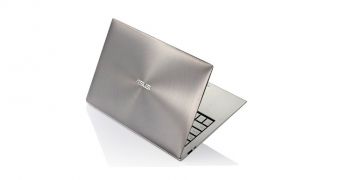Many people may not have thought much of it before tablets set themselves loose, but it seems Intel and ARM are both, to some extent, reaching into the other's territory, the latter more than the former.
There used to be a time when Intel and AMD, with their x86 CPUs, had full control of the consumer PC market.
In much the same manner, the ARM architecture propagated among mobile devices and gained profile as mobile phones became popular and, later, indispensable.
ARM and x86 chips have been vying for the other's turf for a while now.
This so-called ARM-Intel cold war (AMD hasn't been very upfront about any attempts at entering the mobile space until recently) is causing a sort of dilution on the IT market.
Simply put, both companies have succeeded, to some extent, in actually bringing this conflict to the forefront, to the point where notebook makers are betting equally on both platforms.
Then again, as much as it makes Intel uneasy, ARM has been putting on a better showing, since the existence of Android slates is, essentially, its success in breaking out of the boundaries of the mobile market and into the laptop space.
It doesn't seem to be stopping either, not with the advent of NVIDIA's Tegra 3 Kal-El.
Still, on the other side of the field, Intel is readying a counterattack, in the form of a special chip made just for tablets.
2012 will probably be when Intel shows if x86 CPUs really can match ARM in power efficiency.
Also, ARM will have to make stronger and stronger chips as well, even if it won't actually match Intel in performance sooner than 2-3 years.
Either way, as ARM collaborates with Microsoft and Intel with Google, it is clear enough that platform monopoly is no longer a factor, on the notebook market at least.

 14 DAY TRIAL //
14 DAY TRIAL //